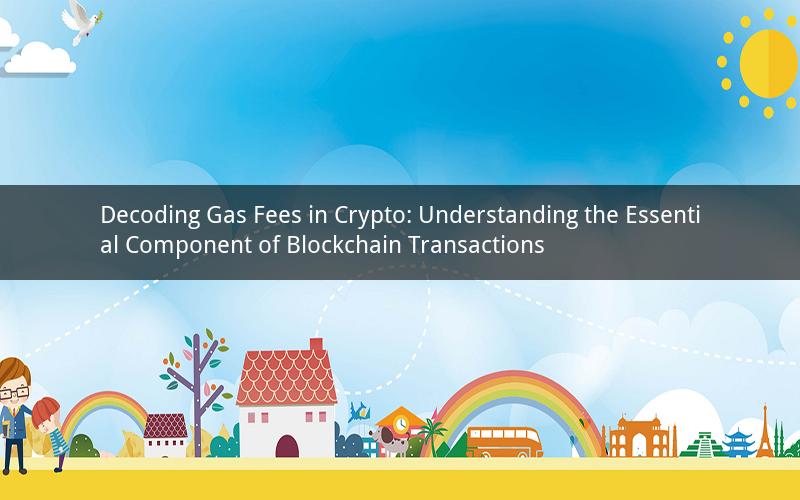
In the rapidly evolving world of cryptocurrencies, understanding various aspects of the blockchain technology is crucial. One such aspect that often confuses many is the concept of gas fees. This article aims to delve into what gas fees are, their significance in the crypto ecosystem, and how they work.
What are Gas Fees in Crypto?
Gas fees refer to the transaction fees paid by users to miners or validators for processing their transactions on a blockchain network. These fees are denoted in the native cryptocurrency of the respective blockchain. The primary purpose of gas fees is to incentivize nodes (miners or validators) to validate and include transactions in the blockchain.
The concept of gas fees originated from Ethereum, one of the first blockchains to implement this mechanism. However, other blockchains like Binance Smart Chain, Cardano, and Polkadot have also adopted this model. The gas fee structure varies across different blockchains, but the fundamental idea remains the same.
How Do Gas Fees Work?
When you initiate a transaction on a blockchain, such as sending cryptocurrency or executing a smart contract, the blockchain requires a certain amount of computational resources to process the transaction. Gas fees serve as a measure of the computational effort required to validate and execute your transaction.
The gas fee is calculated based on two factors:
1. Gas Limit: The maximum amount of gas that a transaction can consume. It represents the number of computational steps required to process the transaction.
2. Gas Price: The price per unit of gas. It is denoted in the native cryptocurrency of the blockchain and determines how much you are willing to pay for each computational step.
The total gas fee is the product of gas limit and gas price. Miners or validators prioritize transactions with higher gas prices, as it incentivizes them to process those transactions first.
Why are Gas Fees Important?
Gas fees play a crucial role in the crypto ecosystem for several reasons:
1. Incentivization: Gas fees provide an incentive for miners or validators to validate and include transactions in the blockchain. This ensures the smooth operation of the network.
2. Resource Allocation: Gas fees help in allocating computational resources efficiently. By allowing users to pay for the computational effort required, the network ensures that resources are used optimally.
3. Security: Gas fees contribute to the security of the network. Higher gas fees encourage miners or validators to prioritize valid transactions, reducing the likelihood of malicious activities.
4. Scalability: Gas fees can impact the scalability of a blockchain network. Networks with high gas fees may experience congestion, leading to slower transaction processing times.
Common Questions and Answers
1. Question: Can gas fees change over time?
Answer: Yes, gas fees can fluctuate based on the demand for blockchain resources. During peak times, when many transactions are being processed, gas fees tend to be higher.
2. Question: How can I estimate my gas fees?
Answer: You can use various online tools and websites that provide real-time gas fee estimations. These tools consider the current gas price and the gas limit required for your transaction.
3. Question: Are gas fees refundable?
Answer: Generally, gas fees are non-refundable. Once you initiate a transaction, the gas fee is paid to the miners or validators and cannot be retrieved.
4. Question: Can I avoid gas fees?
Answer: While you cannot entirely avoid gas fees, you can optimize your transaction to reduce the gas fee. This includes using a lower gas limit and selecting a reasonable gas price.
5. Question: How can I keep track of my gas fees?
Answer: You can monitor your gas fees by checking the transaction history on your wallet or using blockchain explorers. These platforms provide real-time updates on your transaction fees.
In conclusion, gas fees are an essential component of the crypto ecosystem, ensuring the smooth operation of blockchain networks. Understanding the concept of gas fees and how they work can help you make informed decisions while interacting with the blockchain world.